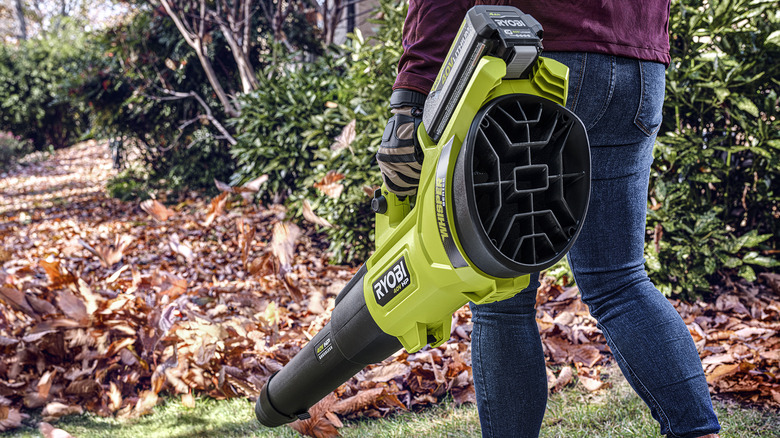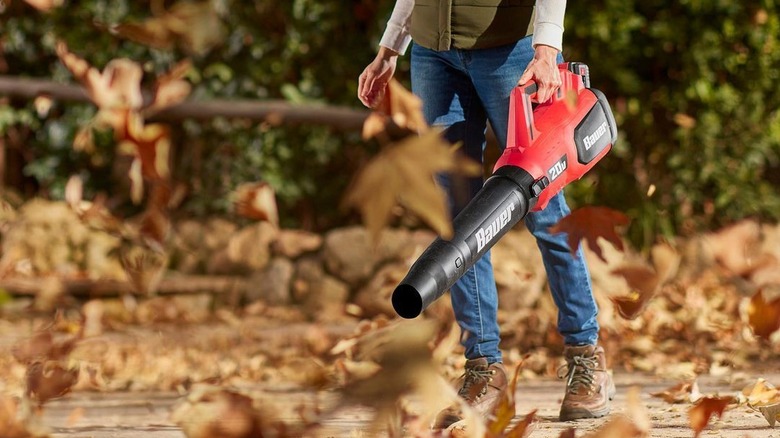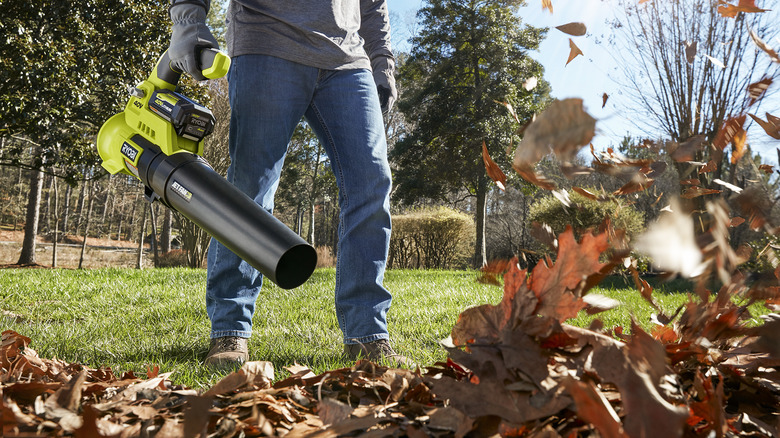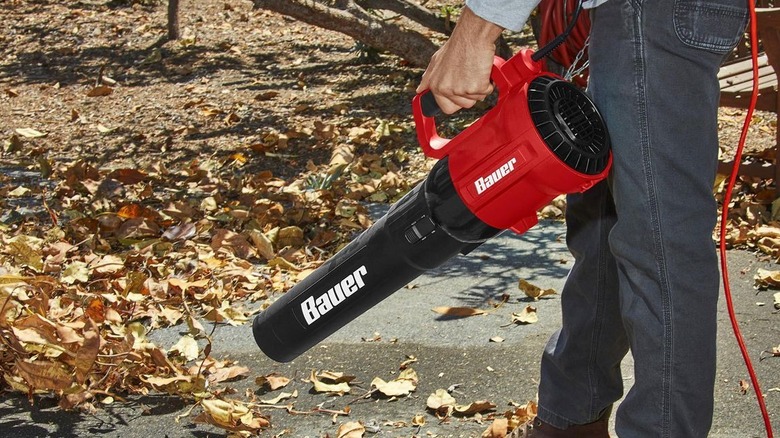Ryobi Vs. Bauer Leaf Blower: How Do These Mid-Grade Tools Compare?
If you've ever gotten your hands dirty with outdoor work, then you know the importance of having a good blower in your tool arsenal. It's hard to think of a product that can take out mountains of leaves, dust, and other debris with the power of a good blower, let alone with the same level of speed and efficiency. Of course, that's not to say that every blower will suffice in the same way. Different brands have produced blowers of varying power levels to suit the needs of different consumers. For buyers seeking quality above-average blowers, the selection from Home Depot's Ryobi and Harbor Freight's Bauer have ranked consistently high.
There's a good reason for this, as both brands offer a solid variety of blowers at affordable prices for most average users, while still delivering on the power needed to get the job done. Given their similar ratings from buyers, both are overall solid choices, so the question ultimately comes down to which one is best for you? Figuring this out depends on the specific job that your blower will have to take on, as well as your personal spec preferences with factors such as its power (measured by cubic feet per minute or CFM), speed (measured in miles per hour), battery life, product size, and more. If you've been on the fence between getting yourself a Ryobi or Bauer blower or are simply curious about both brands, keep reading as we describe what each has to offer.
What to know about Bauer blowers
Harbor Freight is well-renowned for its assortment of affordable, quality tools from its family of in-house brands. Among these is power tool provider Bauer, which carries its own line of capable blowers. What the brand lacks in variety, however, is more than made up for with its quality.
As of this writing, there are two handheld Bauer blowers available. These include the 20V Cordless Jet Fan Blower and the 12 Amp Electric Jet Fan Blower. The electric blower has the higher specs regarding power and speed, delivering 805 cubic feet per minute of airflow with a maximum speed of 115 miles per hour. This blower also comes with variable speed control and rear-facing air intake for more versatile usage. But the 20V option is certainly no slouch. With an airflow rate of 338 CFM and speed of 96 MPH, it still delivers an impressive performance, especially for those in need of a blower for efficient, smaller jobs. Both are extremely lightweight, with neither weighing more than seven pounds, making them easy to maneuver with for extended periods.
As with most Harbor Freight products, Bauer blowers shine in the price department. The 20V blower currently costs $49.99 for the tool alone, while the 12 amp electric blower goes for $74.99. You can get the 20V with a battery and charger for $99.99 or as part of a 6-tool combo kit for $199.99. Either way, customers have largely been happy with both options, with the 20V blower sporting a 4.6-star rating average and the Electric blower being rated 4.8 stars.
What to know about Ryobi blowers
Ryobi is a brand that needs no introduction for many. An essential in the tool sheds of countless DIYers and professionals alike, Ryobi's many popular products have earned the brand a stellar reputation as the perfect mid-grade tool option. Its lineup of blowers is no exception to this rule, with a diverse variety to choose from for every breed of tool user.
Whether you prefer handheld to backpack, 40V to 18V, or gas to electric, there's bound to be a Ryobi blower that works for you. However, while the quality of Ryobi gas blowers is up for debate and its electric blower's specs aren't quite as impressive as Bauer's, the brand truly shines with its comes to its line of battery-powered blowers. The 18V ONE+ blowers alone range in airflow ratings from 200 to 510 CFM and speeds of up to 140 MPH. Many of Ryobi's blowers are brushless, which allows for easier control and a longer runtime. A good few are also part of the company's Whisper Series of products, with a maximum noise rating of 57 decibels, which is roughly the same rating as typical human speech.
And while they do cost more than Harbor Freight's lineup, ranging in price from $49.97 to $599, the blowers typically come with a full kit consisting of batteries and chargers. Additionally, Ryobi's three-year warranty offers far more security than Harbor Freight's 90-day policy.
Which is best for you?
At the end of the day, it's hard to go wrong with either a Ryobi or Bauer blower option. Both offer the features, convenience, and overall performance one would want out of a typical leaf blower and possess largely positive reception from buyers to back up their reputation. What works for you at the end of the day ultimately depends on your specific needs, user preference, and what shortcomings you might be willing to deal with.
Bauer's offerings are an all-around good pick for those with less extensive needs. If all you require is a quality blower that will clean up debris around a moderately sized property, then these will get the job done and then some. Their compact size and lightweight build also makes them ideal for users who are limited on storage space. Likewise, Bauer is generally the more economical choice, at least regarding the base cost, as the most expensive Bauer blower is in the lower or middle of Ryobi's price range.
On the other hand, Ryobi is better for those seeking a longer-term option. While they do cost more on average at the start, not having to purchase the battery and charger separately adds a great level of convenience, while the longer warranty provides peace of mind. And with so many options to choose from, you're likely to find something for your situation, whether you need a lightweight tool for smaller areas to more super-powered products.



